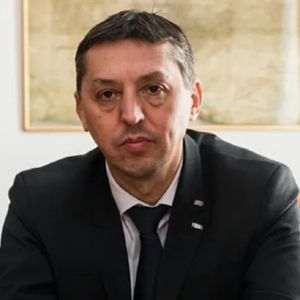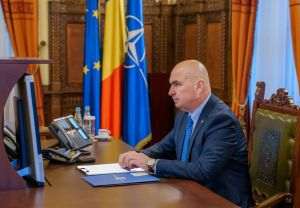The third quarter of 2024 was marked by a series of major challenges for Romania's economy. High summer temperatures have led to increased energy consumption, and the government has taken drastic measures to cover energy needs, including the temporary reopening of some coal-fired power plants. Starting from July and until the end of September, Romania went through a complex financial period, in which fiscal adjustment measures and energy investments were implemented, as well as economic measures to support the business environment. However, the effects of these measures are still unclear, and the country continues to face major challenges in terms of keeping the budget deficit under control and reducing the public debt, especially as the Government oscillates between the need to stimulate the economy and the need to honor commitments deficit reduction and stabilization of public finances.
As the budget deficit continued to grow, reaching alarming levels at the end of September, the Ciolacu government tried to stabilize the situation by issuing new government securities and bonds, as well as by approving a partial fiscal amnesty, but efforts to reduce the deficit was hit by increased spending in the public sector and the necessary investments in infrastructure, health and energy.
At the same time, the National Bank of Romania (BNR) operated two reductions - of 0.5 percentage points each - of the monetary policy interest rate, in an attempt to stimulate the economy and control inflation, which started to decrease, but it remains at a high level compared to other countries in the region.
In these conditions, Prime Minister Marcel Ciolacu, together with the Minister of Finance, Marcel Boloş, and Adrian Câciu, the Minister of Investments and European Projects, started negotiations with Ursula von der Leyen, the President of the European Commission, and other officials of the Community Executive, to expand the margin of deficit in the case of our country and for the approval of a seven-year plan to reduce the deficit to the 3% limit imposed by the rules of the European Union.
However, despite the measures that are also being negotiated with the business environment in our country, the pressure on the budget continued, against the background of high government expenditures, generated by public investments and adopted social measures. In the energy sector, the government has approved new support schemes for green energy, but these have encountered difficulties due to insufficient storage capacities, which have led to the need for high-priced imports.
• July - the heatwave increases the price of electricity
The month of July brought severe challenges for Romania's energy sector, which had to deal with an extreme heat wave, which led to an increased demand for electricity. The heatwave was so severe that temperatures consistently exceeded 40 degrees Celsius in most counties, prompting the population to continuously use air conditioners, including during the night. This increased demand has put immense pressure on the power grids, resulting in blackouts in many localities across the country. To deal with the situation, Prime Minister Marcel Ciolacu convened an Energy Command, establishing a set of emergency measures, including the temporary reopening of some coal-based energy groups. This was a controversial decision given the transition to green energy, but was deemed necessary to ensure the stability of the energy system in the context of such high demand.
Problems in the energy sector have also highlighted the limits of existing energy storage infrastructure. Although Romania invested heavily in renewable energy projects, such as wind and photovoltaic parks, the storage capacities were insufficient. During the day, solar and wind energy was produced in excess and sold at low prices, but in the evening, when demand was maximum due to tropical nights, Romania had to import energy at high prices. In some cases, the price of energy reached 900-1,000 euros per MWh, which put additional pressure on the economy and consumers.
In macroeconomic terms, the month of July was marked by the continuation of budget spending, despite the budget deficit of 3.6% of GDP in the first semester, which represents the most advanced decline in the last 10 years, with the exception of the pandemic year 2020 (when the deficit at 6 months was 4.17% of GDP, generated by the objective cause of the closure of the economy) according to the budget execution for the first semester published by the Ministry of Finance at the end of the seventh month of the current year. The deficit exceeded 12.8 billion euros (63.66 billion lei), 5 billion euros more than in the first six months of 2023. Even though it was facing this deficit, the Ciolacu government approved during July new investments and support schemes, especially for farmers and producers in the agri-food industry. Although ANAF managed to exceed the collection targets for the month of July, the budget revenues were not enough to cover the expenses. The Ministry of Finance was forced to issue new issues of government securities and Fidelis and Tezaur bonds, borrowing considerable sums from the financial markets to cover the shortfall. At the end of July, the Ministry of Finance announced that it managed to attract 658 billion lei, money intended to refinance the public debt and cover the deficit.
Good news came from the National Bank of Romania, which, in the conditions of decreasing inflation, decided to reduce by 0.25 percentage points the monetary policy interest rate, the interest rate for the lending facility (Lombard) and the interest rate for the facility of deposit. It was the first reduction approved by the BNR Board of Directors, from January 2023 onwards, during which the central bank maintained the same monetary policy interest rate of 7% per year. According to the decision of July 5, 2024, the Board of Directors of the NBR decided to decrease the monetary policy interest rate to 6.75% per annum, from 7% per annum, the decrease of the interest rate for the lending facility (Lombard) to 7, 75% per annum, from 8% per annum, and the interest rate on the deposit facility to 5.75% per annum, from 6% per annum.
In terms of sports, the month of July ended on a positive note, with the success of the Romanian athletes at the Olympic Games in Paris. Swimmer David Popovici became the Olympic champion in the 200-meter freestyle on July 29, National Anthem Day, and two days later won the bronze medal in the 100-meter freestyle. These successes brought a wave of optimism and national pride during a difficult economic period.
• August - worrying deficit, negotiations with the European Commission
The last month of summer continued to be a difficult one for Romania's economy, especially due to the increase in the budget deficit. At the end of August, the deficit had reached 4.02% of GDP, well above the 5% target set for the whole year. This evolution was mainly determined by the increase in public spending, in the context of social measures and infrastructure investments. The government, led by Prime Minister Marcel Ciolacu, tried to manage the situation through negotiations with the European Commission. During a meeting with Ursula von der Leyen, the president of the European Commission, Ciolacu requested the expansion of the deficit margin for the coming years and proposed a seven-year plan that would allow Romania to return to a deficit of 3% of GDP.
The NBR continued to reduce the monetary policy interest rate in an attempt to stimulate the economy. After a first reduction in July, in August the interest rate fell to 6.5%. This decision was well received by financial markets and rating agencies. The Fitch agency reconfirmed Romania's rating at BBB-, with a stable outlook, noting that the Romanian economy could register a growth of 2.5% in 2024.
In terms of government spending, August was marked by additional allocations to key ministries such as the Ministry of Transport, the Ministry of Health and the Ministry of Investment and European Projects. The budget of the Ministry of Transport was supplemented with 820 million lei, and the Ministry of Investments received 575 million lei to honor the reimbursement requests submitted by the beneficiaries of European programs. These allocations were needed to support infrastructure projects and cover spending in critical sectors of the economy.
One of the most important measures taken in August was the launch of the 2024 edition of the Start-Up Nation Romania program, which had a budget of over 446 million euros. The program was intended to support entrepreneurship, having two main components: activating the entrepreneurial potential of young people and supporting business development in less developed regions.
Regarding the budget deficit situation, the budget execution for the first seven months of the year, published at the end of August, showed a deficit of 71.04 billion lei, representing 4.02% of GDP, compared to 38.6 billion lei in the same period of the previous year. This increase in the deficit was the result of increased spending, particularly in the public sector, with spending on personnel and goods and services having the largest increases. Total revenues amounted to 331.56 billion lei, registering an increase of 15.1%, supported by receipts from insurance contributions, VAT, tax on salaries and profits, as well as non-tax revenues. On the other hand, the expenses of the general consolidated budget were 402.6 billion lei, with a significant increase in personnel expenses, which amounted to 92.4 billion lei, and expenses for goods and services, which reached 53, 3 billion lei.
On the political level, the month of August also brought preparations for the parliamentary and presidential elections scheduled for the end of the year. Marcel Ciolacu was re-elected PSD leader and nominated as the party's candidate in the presidential elections. This political context determined an increase in government spending, against the background of the social measures adopted on the eve of the elections.
• September - positive budget correction, deficit estimated at 6.94% of GDP
The first month of autumn was a critical one for Romania's economy, marked by an alarming increase in the budget deficit and the first fiscal adjustment measures taken by the Government. The budget execution at the end of August, published by the Ministry of Finance at the end of September, showed a deficit of 4.57% of GDP, well above the level of the previous year. Budget revenues were 375.76 billion lei, while expenses exceeded 456.63 billion lei, a significant difference. Personnel and social care spending continued to rise, further deepening the deficit. In this context, the Government adopted the first budget rectification of the year, which was positive, but which deepened the deficit, forecast to reach 6.94% of GDP by the end of the year. According to the budget rectification, the Gross Domestic Product will be 1,768 billion lei, compared to 1,733 billion lei as provided for in the state budget law. The budget correction foresees an increase of 8.8 billion lei in personnel expenses, 3 billion lei in interest expenses, 5.12 billion lei in social assistance expenses, but also a 1.8 billion lei decrease in the amount allocated investments.
Among the ministries that experienced a budget increase for the current year are:
- The Ministry of Energy received an additional allocation of 1.28 billion lei to support protection measures against the energy crisis and to finance green and sustainable energy projects.
- The Ministry of Health benefited from additional funds to cover the expenses related to the purchase of medicines, equipment and to modernize the hospital infrastructure. In total, 3.89 billion lei were additionally allocated for the health sector.
- The Ministry of Agriculture received 2 billion lei to compensate the losses of farmers affected by drought and other unfavorable climatic phenomena.
- The Ministry of Transport received additional allocations of 5.48 billion lei for the financing of major infrastructure projects, especially for the construction of highways and the modernization of railways.
- The Ministry of Development, Public Works and Administration received another 9.7 billion lei. This budget is intended for the most part to continue supporting the investment projects from the national programs "Anghel Saligny", PNDL 1 and 2, as well as the programs of the National Investment Company, to which are added complementary programs with funding from the PNRR related to it: Valul Renovării and urban mobility support programs.
- The Ministry of Investments and European Projects has an additional allocation of 3.3 billion lei for projects financed from the FEN (vouchers for disadvantaged people, educational support for the 2024-2025 school year, for disadvantaged children, tuition fees, etc.).
The government also approved a partial tax amnesty, aimed at recovering approximately 9.5 billion lei in arrears of companies and individuals. The measure of fiscal amnesty would benefit 330,000 companies and 848,000 natural persons, who must pay by November 25, 2024 the arrears registered on August 31, 2024 regarding the main obligations to the state budget, in which case the interests, penalties will be deleted and other accessories. This is considered by the Government to be a necessary measure to stimulate receipts to the state budget, but the real impact on the deficit remains uncertain.
In the energy sector, September was marked by the launch of a state aid scheme, in the form of contracts for difference (CfD), for renewable energy production. The first tender under this scheme targets photovoltaic and wind projects, with a total capacity of 1,500 MW. This measure is part of Romania's efforts to diversify its energy sources and reduce dependence on imports.
Also in September, the BNR published data on the current account deficit, which reached 15.178 billion euros in the first seven months of the year, up 33.99% compared to the same period last year. This reflects an increase in imports, especially of energy, and a decrease in exports, which contributed to the deepening of the trade imbalance.
In conclusion, September was a critical month for Romania's economy, marking a continuous increase in the budget deficit and a series of fiscal adjustment measures that had a limited impact on the stabilization of public finances. Against the background of a difficult economic situation, the Government faces major challenges in terms of maintaining budgetary stability and reducing the deficit in line with international commitments.




























































